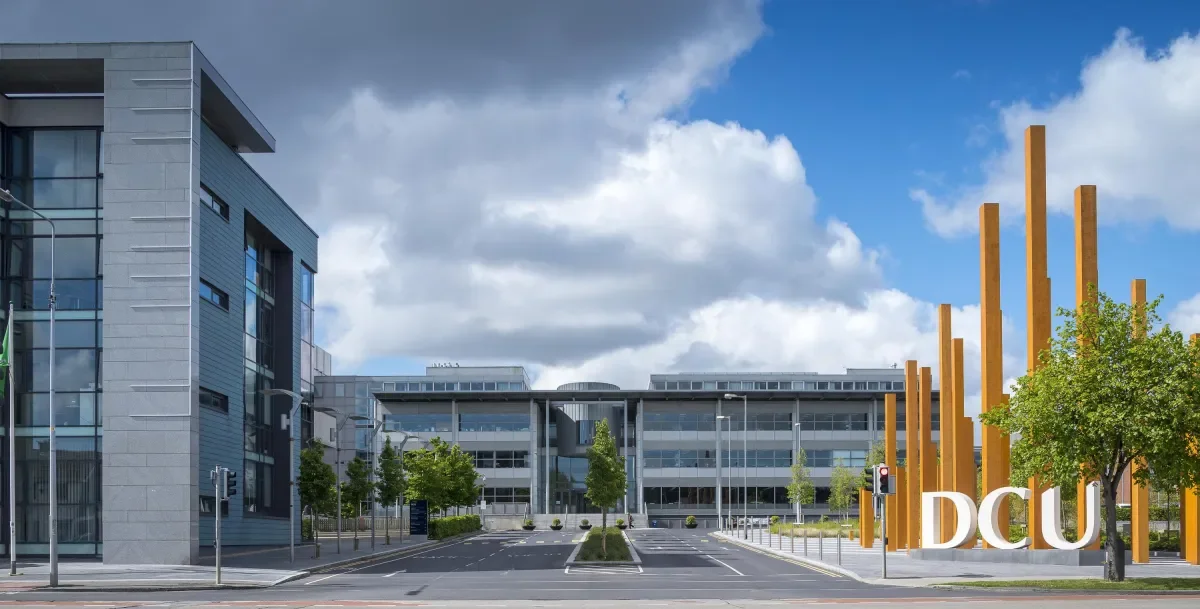

DCU projects announced as part of the SFI Frontiers for the Future Programme valued at €53 million
Five research projects at DCU are among a list of 71 grants announced today as part of the SFI Frontiers for the Future Programme, valued at over €53 million across 12 Higher Education Institutions.
The research supported will impact areas such as spinal cord injury, novel materials, climate change, biodiversity in food production and waste, smart manufacturing, social connectivity, computer graphics, horse breeding, pharmaceutical manufacturing, and information security.
Working across 12 Higher Education Institutes, 231 research positions will be funded including 95 Postdoctoral scientists, 101 PhD students and 35 Research Assistants/others across a variety of different areas.
The programme also sought to provide opportunities to address gender imbalance in line with SFI’s Gender Strategy, 45% of the research grants supported will be led by female researchers.
The programme was run in collaboration with the Geological Survey Ireland (GSI) and the Environmental Protection Agency (EPA). 38 industrial collaborators are engaging in the research programmes.
The SFI Frontiers for the Future programme comprises two funding streams:
• Projects – 45 high-risk, high-reward research projects will receive €25 million to facilitate highly innovative and novel approaches to research.
• Awards - 26 larger scale innovative, collaborative excellent research programmes that have the potential to deliver economic and societal impact will receive €28m in funding.
The research will be undertaken in the following Higher Education Institutions - Dublin City University (DCU); Dundalk Institute of Technology (DkIT); Maynooth University; National University of Ireland, Galway (NUIG); RCSI, University of Medicine and Health Sciences; Teagasc; Technological University Dublin (TU Dublin); Trinity College Dublin (TCD); Tyndall National Institute (TNI); University College Cork (UCC); University College Dublin (UCD) and University of Limerick (UL).
The DCU projects are,
Prof Tia Keyes, “Shedding light on advanced microscopy; Supramolecular probes for super-resolution microscopy and phototheranostics”.
Dr Paula Meleady, National Institute of Cellular Biotechnology, “Chinese hamster ovary cell lines”.
Dr Mary Pryce, School of Chemical Sciences and Deirdre Fitzgerald-Hughes, RCSI, University of Medicine and Health Sciences “Exploiting Singlet Fission: An Innovate Design Strategy for Antimicrobial Materials”.
Dr Jennifer Foster, School of Computing, “Rolling in the deep: unravelling a neural net’s capacity for language”.
Prof John Costello, School of Physical Sciences, “Tracking Ultrafast Electron Dynamics in Next Generation EUV Lithography (EUVL) Materials”.
Minister for Further and Higher Education, Research, Innovation and Science, Simon Harris TD said,
“Congratulations to all the researchers who have received funding today as part of the SFI Frontiers for the Future Programme. I am delighted to support this programme which funds individual-led research, with an emphasis on areas of high-risk, high-reward, which will help us build a better future for Ireland through discovery, innovation, and impact.
“I am pleased to see the successful outcome of the new gender initiative that sees 45% of the research grants announced today led by female researchers. The funding will support researchers who are already carrying out excellent work in Ireland, as well as those in the early stages of their research careers who hold incredible potential. It is through investment like this that Ireland will become an innovation leader and provide solutions and opportunities for our society and economy.”
Professor Mark Ferguson, Director General of Science Foundation Ireland and Chief Scientific Adviser to the Government of Ireland said,
“This was a highly competitive process and I’m delighted that we are able to fund 71 new research grants through the SFI Frontiers for the Future programme. These are highly skilled, talented, and dedicated researchers and it is crucial that we invest in their excellent ideas and research, to maintain and build on Ireland’s global standing in research, innovation, and discovery. I would like to thank the Higher Education Institutions for their support in delivering this new programme.”
